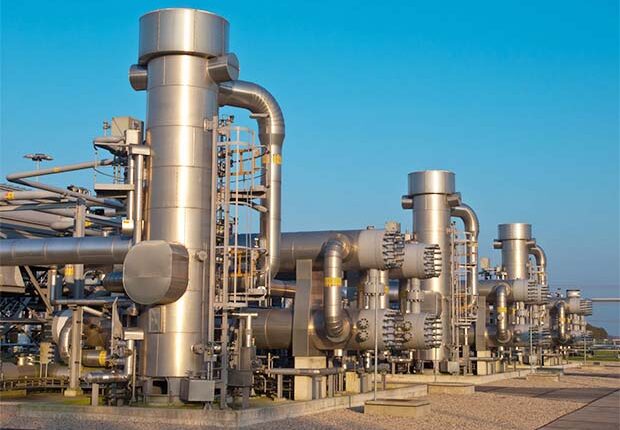Nigeria, Africa’s largest oil producer, faces a significant challenge as its oil Gross Domestic Product (GDP) growth slows to 5.7 percent in the first quarter of 2024.
The country, which relies heavily on oil production for about two-thirds of its government earnings and 90% of its foreign exchange income, is seeing a decline in the sector’s contribution to its economy.
Join our WhatsApp ChannelRecent data from the Nigerian National Bureau of Statistics (NBS) shows that the oil sector’s GDP growth dropped to 5.7 percent in the first quarter of 2024, down from 12.1 percent recorded in the previous quarter. The crude petroleum GDP also dipped from 6.41 percent in the fourth quarter of 2023 to 5.70 percent in Q1 2024.
Nigeria recorded an average daily oil production of 1.57 million barrels per day (bpd) in the first quarter of 2024, slightly higher than the 1.51 million bpd recorded in the same quarter of 2023. This is also an increase from the fourth quarter of 2023, which had a production volume of 1.55 million bpd.
“Why should a country like Nigeria, which has been producing and exporting oil for the past 70 years, not have a scientific way of metering and recording what leaves, what is pumped, and what is sold?” questioned Seriake Dickson, representing Bayelsa West in the National Assembly, on Channels Television. He added, “People from Abuja and Lagos are the masterminds, and the official system is not ignorant. The entire official security and oil systems, along with the federal system, are complicit.”
READ ALSO: Diesel Price To Rise, As FG Moves To Charge VAT After Oil Sector GDP Contribution Drops
Dickson, a former governor of Bayelsa State, alleged that the official system and some oil companies benefit from oil theft in the Niger Delta, complicating the issue further. Large-scale oil theft has been a significant challenge for President Bola Tinubu, damaging government finances and limiting the country’s oil output and exports.
Despite the increase in oil revenue, with current oil prices at $82 per barrel compared to the country’s 2024 budget based on $77.96 per barrel and 1.78 million bpd, Nigeria has struggled to raise output. Theft and sabotage have forced major oil companies like Shell and ExxonMobil to exit their onshore assets, exacerbating the production issues.
“The easiest and quickest way to resolve our foreign exchange problem is to increase oil production,” said Festus Osifo, president of the Petroleum and Natural Gas Senior Staff Association of Nigeria. “We appeal to President Tinubu’s government to relocate military commanders to the Niger Delta to ensure that the menace of oil theft is halted, allowing us to generate more revenue,” Osifo added in a statement.
Adding to the challenges, Nigeria is also struggling to find buyers for its crude oil due to a decline in demand from Europe. According to traders specializing in the West African market, about 20 to 25 shipments of Nigerian crude for April loading are still seeking buyers. This situation is unusual for this time of the month, as trade typically moves on to the next month’s barrels. The prices for these shipments are also falling, further complicating Nigeria’s oil market dynamics.
The situation underscores the critical need for Nigeria to address its oil sector’s inefficiencies and security issues to stabilize and grow its economy, which remains heavily dependent on oil revenues.
Emmanuel Ochayi is a journalist. He is a graduate of the University of Lagos, School of first choice and the nations pride. Emmanuel is keen on exploring writing angles in different areas, including Business, climate change, politics, Education, and others.
- Emmanuel Ochayihttps://www.primebusiness.africa/author/ochayi/
- Emmanuel Ochayihttps://www.primebusiness.africa/author/ochayi/
- Emmanuel Ochayihttps://www.primebusiness.africa/author/ochayi/
- Emmanuel Ochayihttps://www.primebusiness.africa/author/ochayi/

















Follow Us